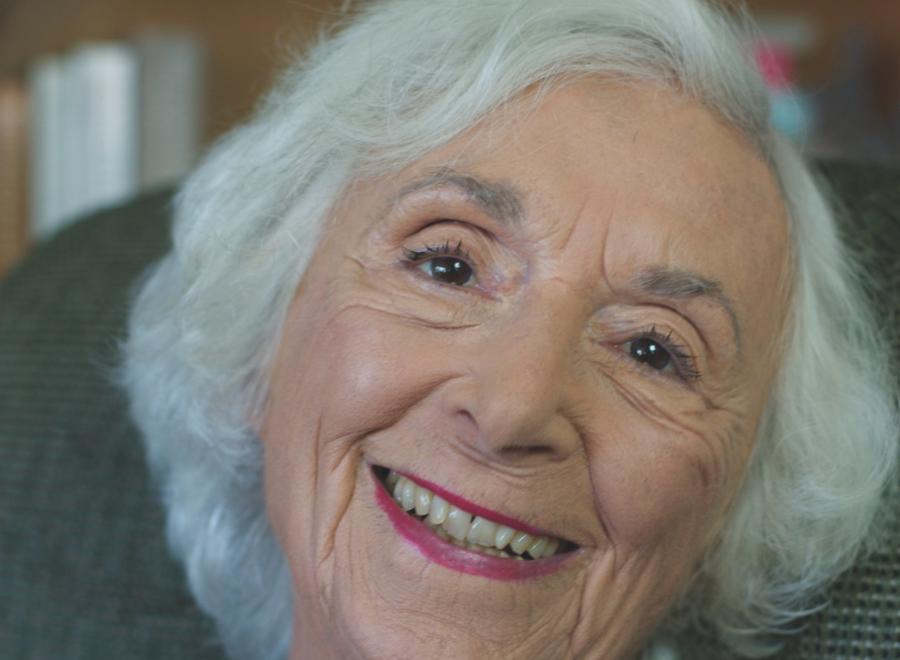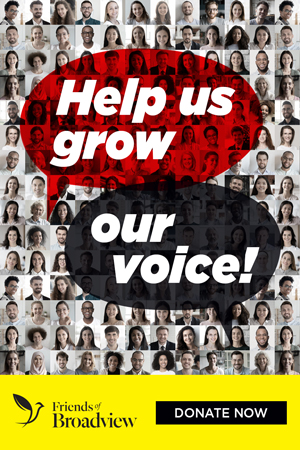Futurist thinker Barbara Marx Hubbard is a passionate voice for conscious evolution and the spiritual potential of humanity. She spoke to Karen Hilfman Millson from her home in Santa Barbara, Calif.
Karen Hilfman Millson: You’re often described as “the mother of conscious evolution.” What exactly is conscious evolution?
Barbara Marx Hubbard: Conscious evolution is the advent of the first age in which humans are aware that we are affecting our own evolution by everything we do: the food we eat, the babies we have, the cars we drive, the wars we fight and the way we’re handling our environment. If you look at the story of the universe as an evolutionary spiral through single cells and multi-cells and animals and humans and now us, you begin to catch the pattern of evolution.
I saw this concept first in the writings of Pierre Teilhard de Chardin, the Catholic Jesuit paleontologist who was not published by the church during his lifetime. Basically, he saw God in evolution. He saw the direction of evolution to be what he called the Law of Complexity Consciousness: [the movement of matter toward] higher freedom, greater consciousness, a more synergistic or complex order. In other words, not only is there God intelligence in evolution, but it has a higher direction toward consciousness.
We’re all connected now, through the Internet, for example, and he had the intuition that once there’s a certain degree of connectivity, a new layer of consciousness will come upon the Earth. He called it the Christification of the Earth. The purpose of conscious evolution is to work together toward a planetary connectivity that is loving, creative, sustainable, imaginative and imbued with the impulse of evolution.
KHM: How does conscious evolution intersect with Christianity?
BMH: Well, I happen to be Christ-inspired in just about everything I’ve ever done. I come from an agnostic Jewish background, so I got no religion as a child. My life was guided by questions. I [was inspired by] Teilhard de Chardin in his idea of the Christification of the Earth and the linking up of humanity to create greater goodness.
When I realized that the story of the birth of Jesus is comparable to the story of the birth of humanity as a co-creative, co-evolving species, I had an experience of the inner Christ — [Divine] love combined with science and technology could actually lead to the changing of the world for good. I therefore have become inspired by an evolutionary experience of the Christ as the emerging potential of humanity.
KHM: Can you elaborate on what you mean by this Christ consciousness?
BMH: I mean that the Divine love within you becomes so incarnated that you are empowered by that love to act as a co-creator with that Divine. It has all the qualities of caring for others, of loving others. Jesus was quite an evolutionary. He would not put up with structures of domination. He was non-violent. Instead of trying to be a power in the existing system, he said, “I’m going to die and rebuild my body. I’m going to create something radically new.”
As a futurist, when I combine Christ love with all my studies in technology, biology and the far reaches of the evolutionary technologies, I realize that the story of the life of Jesus (including the crucifixion, the resurrection, the ascension, the promise that we should all be changed, that we will do the work he did and greater work) is actually a true evolutionary impulse.
However the story was written, whatever actually happened, we may not fully know, but what was written there changed the world [through the actions of] those who believed it. Those who believe it now are continuing to change the world, not by excluding other religions, but by saying all people have their own version of that impulse.
KHM: How does this evolutionary impulse manifest in individuals?
BMH: The impulse is the creative impulse of the Divine, but when it comes into your heart, it is your own impulse to express your own gift of love into the world. God is creator and co-creating through you. Your impulse is your gift of love. You want to give it. You love to give it. You need to give it. You’re called to give it.
KHM: You encourage people to become aware of the power within them to bring about transformation in the world. Do you see this aligning with the Christian perspective that we are called to create the Kingdom of God on Earth?
BMH: I do. I think of the Kingdom of God on Earth particularly when Jesus said, “You will do the work that I do and even greater work than I have done.” The Kingdom is really a mysterious opening into the next stage of evolution.
I think Jesus did what it was possible to do in his generation, but he also planted seeds that are very future-oriented. Conscious evolution is evolution by choice, not chance. The stories of the Kingdom of God are about choices.
KHM: You’ve often said that crisis provides the potential for birth or that problems become evolutionary drivers. How might the crises we are facing today spark transformative change?
BMH: Evolution has taught us that crisis always precedes transformation. Such an understanding gives us a sense of vision that our crises have meanings. That’s a big wake-up call for our maturation around the dangers being caused by environmental breakdown.
The people who are studying this see it as not only the most dangerous moment in conscious human history but also the one most pregnant with opportunity. We are being driven by this set of crises to community, to co-creation, to spiritual alignment with the greater process. I think it’s the greatest crisis that the human species has ever had, and the pattern of evolution is that a crisis is needed in order to evolve the species.
KHM: How do you hope to see us evolving?
BMH: The structure of modern society is top-down in silos. We’ve become paralyzed by win-lose opposition and can hardly move. Where you find the jump toward co-creation is among the people like us who are not at the top of these structures. We are all part of the living organism of planet Earth, and part of one whole system.
While we’re finding a whole system breakdown, we’re also facing a whole system breakthrough. At the very hub of this system is Spirit, as well as the spirit of co-ordination and integration and synergy that has brought the world from that original explosion to you and me sitting here.
The enormous tendency in nature is to connect to create more complex whole systems, so I feel that we need to connect to co-create and to cultivate social synergy. As the system is becoming dysfunctional on one side, it’s also throwing up innovations to work toward a creative, sustainable world.
KHM: What place do churches have in the conscious evolution movement?
BMH: Churches are central because they are already spiritual hubs. They’re already reaching out to people of all kinds. It’s hard for scattered people to form their own hub to make something new happen. You already have the meetings.
If the structure within churches could move to more fully facilitate social synergy and co-creation, I think that would be one of the greatest things that churches could do. [We want to] play the win-win-win game. Win for the planet, win for the people, win for enough survival and resources for everybody.
It’s important to remember how the spiral of evolution keeps going toward newness. That gives us hope. It’s just like the vision in Isaiah where God says, “Behold, I am doing a new thing!”
This interview has been condensed and edited.
***
This story first appeared in The United Church Observer’s December 2013 issue with the title “‘Your evolutionary impulse is your gift of love You’re called to give it.’”


Comments